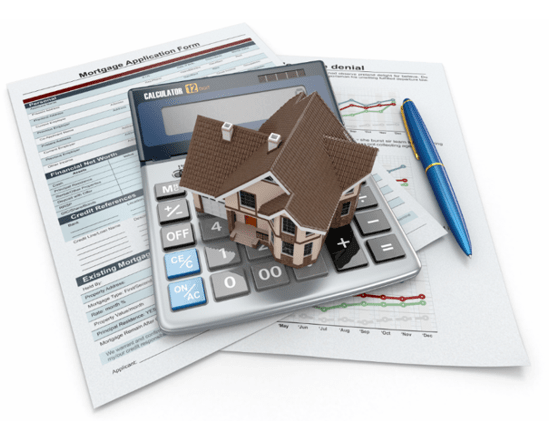Overview: What is Private Mortgage Insurance? What You Need to Know About PMI Insurance
The entire home buying process comes with seemingly endless costs and fees. Navigating through what each cost means can be a confusing and exhausting process. One of the common home-buying costs you will encounter is private mortgage insurance (PMI insurance).



Image source: Bigstock
So, what is PMI insurance? And what is PMI insurance for? Let us help you answer these questions. In this article, we will break down the ins and outs of PMI insurance so that you can feel confident in understanding what you are paying for each month.
Or, perhaps you will learn enough to avoid PMI mortgage insurance altogether or even get rid of it sooner to save extra money each
See Also: Can You Pay Rent Online? How to Pay Rent with a Credit Card Online
What Is Private Mortgage Insurance?
So, let’s say that you want to buy a house but do not have enough money for a large down payment. Whatever money you have collected for that down payment currently comes to under 20% of the house’s cost, but you still want to buy the house anyway.
Luckily for you, lenders want to mortgage that house to you as well. However, before they do, they need a little insurance. In case you default on your payments and the house goes into foreclosure, lenders want to make sure they do not lose out on all the money you did not pay.
Private mortgage insurance gives lenders the confidence they need to allow you to mortgage your house with a low down payment. If you foreclose, lenders will still be okay. So what is PMI mortgage insurance for in a nutshell? Essentially, PMI mortgage insurance is foreclosure insurance for your lender to whom you pay.
This little exchange costs you some money in the long run. Normally, PMI insurance will cost you between 0.3% and 1.5% of the original loan amount each year.
How Does PMI Insurance Work?
To figure out your private mortgage insurance, your lender first figures out your loan-to-value (LTV) ratio. Say you bought a home for $150,000 and chose a 10% down payment ($15,000). This means your mortgage would be for $135,000, but the value of the house is still $150,000. If you divide the mortgage by the value, you get your LTV ratio. In this case, it would be 90%.
Each time you put more money into the equity of your home, that LTV number starts to drop. The lenders also feel more and more confident that they will not lose a lot of their money.
Eventually, you will be down to an LTV of 80%, the number you would have been at if you had done your 20% down payment. At this point, you can ask for private mortgage insurance to be removed. However, at a 78% LTV, it will automatically be removed.
While you are paying your PMI mortgage insurance, the payment will typically appear on your monthly mortgage bill.
Don’t Miss: Top Mortgage Lenders – List of US Largest Mortgage Lenders (Reviews)
All-in-One Change Management Tools
Top Rated Toolkit for Change Managers.
Get Your Change Management Tool Today...
Is PMI Mortgage Insurance Required for Everyone?
Not every homeowner ends up strapped with PMI insurance. In fact, private mortgage insurance is not required for two types of people:
- Those who have put at least a 20% down payment on their home
- Those who have a loan out through the FHA or the VA. Both use entirely different systems to back a mortgage. We get into these two types of mortgages further down.
Does PMI Insurance Help or Hurt You?
Does the option of private mortgage insurance help your finances or hurt them? Let’s see what two popular finance gurus have to say about it.
Dave Ramsey offers many articles on getting rid of or avoiding PMI mortgage insurance. He even calls it a “ridiculous expense.” Ramsey provides information on canceling your private mortgage insurance as well.
Financial guru Suze Orman says of PMI insurance, “Yes, I am well aware lenders will be happy to give you a mortgage with a down payment of as little as 3% or so. Don’t fall for it.” Orman even cites private mortgage insurance as a reason to not buy a home. She suggests you continue to rent.
We will present you with the main pros and cons of private mortgage insurance. That way, you can decide whether it is right for you.
The Pros of PMI Insurance
What is private mortgage insurance offering you in terms of benefits? Well, the fact of the matter is that there are not many benefits to private mortgage insurance. So let’s focus on the two pros it does offer:
- PMI insurance means a lower down payment for you: The only true and major pro of private mortgage insurance for the homeowner is that you could afford your home without setting down a very large down payment. This can move you into your own house sooner – something that sometimes needs to happen.
- Some PMI insurance payments are tax-deductible: If your gross income is less than $109,000 a year, you are able to deduct part or all of your PMI insurance payments on your taxes. If you make more than that yearly, you will not be able to deduct it (moving this point into the cons section).
Related: Best Mortgage Companies (Overview of the Top Mortgage Lenders)



The Cons of Private Mortgage Insurance
Undoubtedly, there are real cons when it comes to PMI insurance. The only person who is truly benefitting from your payments is your lender. Unfortunately, you are subject to these negative facts when paying your private mortgage insurance:
- PMI insurance can last a long time: Depending on the cost of your home, your interest rate, and your PMI mortgage insurance rate, collecting enough equity in your home to get rid of your private mortgage insurance can take years.
- PMI insurance costs: According to financial expert Dave Ramsey, private mortgage insurance costs “about $60–70 a month per $100,000 borrowed.”
- PMI Insurance payments do not go toward your equity: The “catch 22” of PMI mortgage insurance is that you want to quickly build your equity to get rid of the PMI, but spending money on private mortgage insurance leaves you with less money for extra house payments. Essentially, you are throwing money away each month.
Figuring out Your PMI Insurance Fees
What is PMI mortgage insurance actually costing you? Here is a simple way to figure out what to expect before buying your new home.
Multiple websites offer free private mortgage insurance calculators. Typically, you will punch in your home value (the sales price or current appraised value), your loan amount, the current interest rate, and your loan term in years. Then, the calculators will give you an estimate on what PMI insurance you will be paying monthly.
Some of these helpful PMI insurance calculators can be found here:
- Good Mortgage
- HSH
- U.S. Mortgage Calculator









What About Single-Payment PMI Insurance?
Sometimes, you can work it out with your lender to pay your private mortgage insurance upfront. Instead of monthly billing, you will figure out the lump sum cost.
The benefit is it will be slightly cheaper for you to pay the installment in a single payment than monthly payments. But, typically, the single-payment private mortgage insurance options cost thousands of dollars.
So, make sure to do your own math or sit down with your personal financial advisor to see if it makes more sense to pay off your PMI insurance or to simply put more on your down payment and get it closer to (or meet) 20%.
How to Avoid PMI Mortgage Insurance



Image source: Bigstock
The easiest way to never have to worry about PMI insurance is to never find yourself in a situation where you have to pay it to begin with. This is not feasible for every homeowner or every family, but those who can avoid private mortgage insurance should try.
Here are three ways to avoid PMI insurance altogether:
- Save for full down payment: Choosing to not buy a home until you have saved up a full 20% down payment will save you money in the long run – and not only from PMI insurance savings. A big down payment means your lender will often offer you a lower interest rate.
- Get an FHA loan: Instead of going with a private lender, FHA loans are offered by the Federal Housing Administration. FHA loans only require a 3.5% down payment. It will then finance the rest of the cost without private mortgage insurance.
- Get a VA Loan: VA mortgage loans are offered by the United States Department of Veterans Affairs. VA loans do not require any down payment and will finance your home without requiring PMI mortgage insurance. To check if you or your spouse’s military service qualifies for a VA loan, see the qualifications here.
How to Get Rid of Your Private Mortgage Insurance
If you already find yourself with PMI insurance, there are five avenues you can go down to get rid of it:
- Contact your lender: Remember, if you have reached 20% equity in your home, you can request to have the private mortgage insurance dropped. At 22%, it should be dropped automatically.
- Appraise Your Home: If you feel your home’s value has shifted enough to offset that loan-to-value (LTV) ratio and bring you to your 22% equity, you can request a new appraisal. Keep in mind that appraisals can cost a few hundred dollars too.
- Add on: Remodeling your home to add new rooms or features, like an outdoor swimming pool, can drastically increase your home’s value. This too can potentially adjust your LTV percentage, possibly making you eligible to drop your PMI insurance immediately.
- Refinance: The only reason to refinance to lower PMI mortgage insurance is if you know for sure the value of your home has increased substantially. This is another avenue to adjust the LTV ratio and allow you to get rid of the private mortgage insurance.
- Make extra house payments: Not only does an extra house payment get you one month closer to owning your home, but it also brings you one month closer to getting rid of PMI insurance by building your equity.
Popular Article: Imortgage Reviews – What You Should Know (Complaints & Review)
Free Wealth & Finance Software - Get Yours Now ►
PMI Insurance: Your Next Steps
We have answered the question, “What is PMI mortgage insurance?” Now it is time to figure out your next steps.
If you are in the market to buy a home: Decide whether or not private mortgage insurance monthly costs are worth being allowed to put down only a small down payment. Remember, you can save hundreds of dollars a year by not getting PMI mortgage insurance to begin with.
If you have been paying PMI insurance for a couple of years: Evaluate whether or not you believe the value of your home has gone up at all. If it has, choose one of the avenues in the above section to readjust your LTV ratio and potentially dump your private mortgage insurance.
Whether you are about to buy or have already bought, it is important to always talk to your lender directly to discuss the fine print of your own PMI mortgage insurance agreement.
Read More: Best Bad Credit Mortgage Lenders for Bad Credit Borrowers
AdvisoryHQ (AHQ) Disclaimer:
Reasonable efforts have been made by AdvisoryHQ to present accurate information, however all info is presented without warranty. Review AdvisoryHQ’s Terms for details. Also review each firm’s site for the most updated data, rates and info.
Note: Firms and products, including the one(s) reviewed above, may be AdvisoryHQ's affiliates. Click to view AdvisoryHQ's advertiser disclosures.



